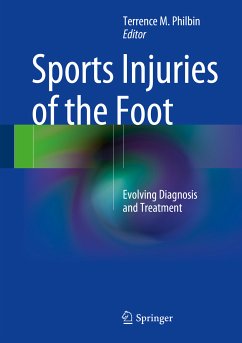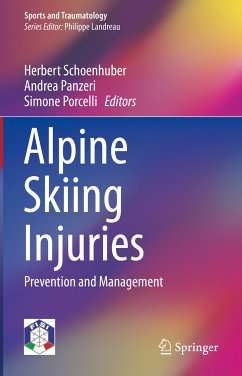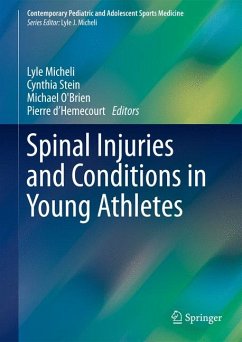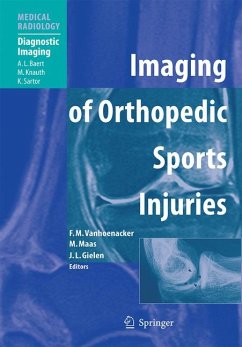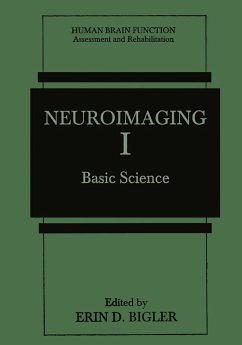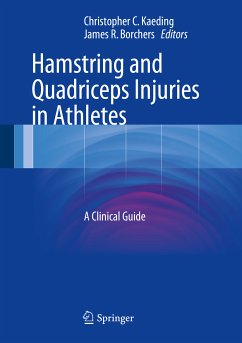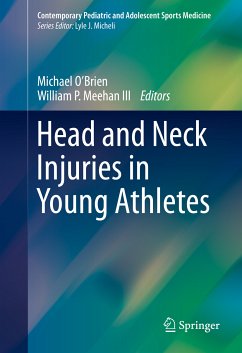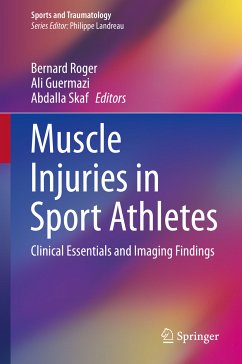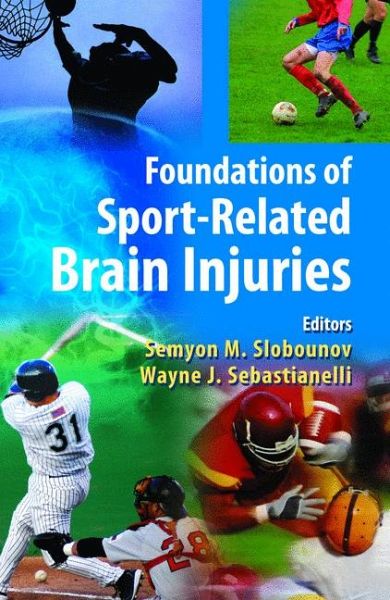
Foundations of Sport-Related Brain Injuries (eBook, PDF)
Versandkostenfrei!
Sofort per Download lieferbar
112,95 €
inkl. MwSt.
Weitere Ausgaben:

PAYBACK Punkte
56 °P sammeln!
This book is the partial product of a conference on concussion in athletics held at the Pennsylvania State University, April 29-30, 2004. For a number of reasons it seemed timely to hold such a conference as well as to condense our current understanding of mechanisms, predispositions, and latest developments in evaluation and managements of sport-related concussions in a single book format. Despite dramatic advances in medicine, traumatic brain injury, commonly know as concussion, is still one of the most puzzling and least understood injuries facing the sport medicine world today. There still...
This book is the partial product of a conference on concussion in athletics held at the Pennsylvania State University, April 29-30, 2004. For a number of reasons it seemed timely to hold such a conference as well as to condense our current understanding of mechanisms, predispositions, and latest developments in evaluation and managements of sport-related concussions in a single book format. Despite dramatic advances in medicine, traumatic brain injury, commonly know as concussion, is still one of the most puzzling and least understood injuries facing the sport medicine world today. There still no universal agreement assigning the level of severity the sport-related concussions nor there is any treatment besides the passage of time. Medicines' inability to fully understanding concussion, has led us to question when it is truly safe to return an athlete to full sport participation so threat for risk of re-injury is minimized. The need for a multidisciplinary approach to understanding the spo- related concussions stem from recent evidence that there are long-lasting residual behavioral, psycho-social and neural disabilities that are often overlooked using current research methods. The notion of transient and rapid symptoms resolution is misleading since symptoms resolution is frequently not indicative of injury resolution. There are no two traumatic brain injuries alike in mechanism, symptomology, or symptoms resolution. Most grading scales are based on loss of consciousness, and post-traumatic amnesia, both of which occur infrequently in sport-related mild traumatic brain injuries.
Dieser Download kann aus rechtlichen Gründen nur mit Rechnungsadresse in A, B, BG, CY, CZ, D, DK, EW, E, FIN, F, GR, HR, H, IRL, I, LT, L, LR, M, NL, PL, P, R, S, SLO, SK ausgeliefert werden.




